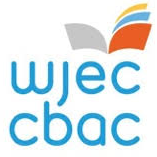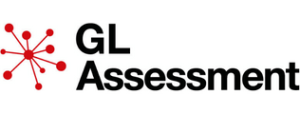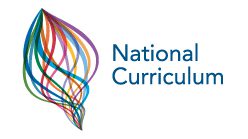GCSE English Literature
Exam Boards Covered: AQA, OCR, Edexcel, Educas
As outlined in the English language section, as English subject specialists, all our GCSE English teachers are familiar with the new specifications of both the English Literature and English Language courses.
English literature encourages students to become more enthusiastic and independent readers, allowing them to develop imaginative, critical and analytical skills. Furthermore, by aiming to increase the enjoyment of reading, it helps students to nurture a love of literature outside the classroom.
Specifications of each exam board deepen a student’s understanding and knowledge of a range of poetry, prose and drama, including texts from Shakespeare as well as modern writers. Students are taught how to explore the impact of language, structure and form in the texts, as well as how to connect ideas, themes and issues in texts.
Furthermore, students learn how to explain settings, characters, themes and plots creatively through historical, social and cultural contexts. They develop their ability to effectively research, plan and prepare their responses using their own ideas and interests, as well as critical reading.
Topics Covered in GCSE English Literature
GCSE English literature involves studying a range of poetry, prose and drama. These include texts written by Shakespeare, texts included in the 19th century novel, texts writings by more modern writers and a range of poems.
The following table shows a general list of these texts:
Shakespeare
- Macbeth
- Romeo & Juliet
- The Tempest
- The Merchant of Venice
- Much Ado About Nothing
- Julius Caesar
19th Century Novel
- The Strange Case of Dr. Jekyll and Mr Hyde
- A Christmas Carol
- Great Expectations
- Jane Eyre
- Frankenstein
- Pride and Prejudice
- The Sign of Four
Modern Texts
- An Inspector Calls
- Blood Brothers
- The History Boys
- DNA
- The Curious Incident of the Dog in the Night-Time
- A Taste of Honey
- Lord of the Flies
- Telling Tales
- Animal Farm
- Never Let Me Go
- Anita & Me
- Pigeon English
Poems
- When We Two Parted
- Love’s Philosophy
- Porphyria’s Lover
- Sonnet 29 ‘I think of thee’
- Neutral Tones
- Letters from Yorkshire
- The Farmer’s Bride
- Walking Away
- Eden Rock
- Follower
- Mother
- Before You Were Mine
- Winter Swans
- Singh Song
- Climbing My Grandfather
- Ozymandias
- London
- Extract from ‘The Prelude’
- My Last Duchess
- The Charge of Light Brigade
- Exposure
- Storm in the Island
- Bayonet Charge
- Remains
- Poppies
- War Photographer
- Tissue
- The Emigree
- Checking Out Me History
- Kamikaze
Structure of the GCSE English Literature Exam Papers
Typically, the structure of the exam for each exam board takes the form of 100% examination comprised of two examination papers:
Paper 1: Based on Shakespeare and the 19th-century novel
Questions are typically based on:
Section A – Shakespeare: Students will answer questions on a play of their choice. They will be required to write in detail about an extract from the play and then to write about the play as a whole. Typical plays can include:
Macbeth, Romeo & Juliet, The Tempest, The Merchant of Venice, Much Ado About Nothing and Julius Caesar
Section B – The 19th Century Novel: Students will answer questions on their novel of choice. They will be required to write in detail about an extract from the novel and then to write about the novel as whole. Typical novels can include:
The Strange Case of Dr. Jekyll and Mr. Hyde, A Christmas Carol, Great Expectations, Jane Eyre, Frankenstein, Pride and Prejudice, The Sign of Four
Paper 2: Based on modern texts, poetry cluster and unseen poetry
Questions are typically based on:
Section A – Modern Texts: Pupils will answer an essay question from a choice of two on their own studied modern prose or drama text. Typically, they include:
An Inspector Calls, Blood Brothers, The History Boys, DNA, The Curious Incident of the Dog in the Night-Time, A Taste of Honey, Lord of the Flies, Telling Tales, Animal Farm, Never Let Me Go, Anita & Me, Pigeon English
Section B – Poetry: Pupils will answer a comparative question on one named poem printed on the paper and one other poem from their own chosen anthology cluster. This typically includes the following genres:
Poems (Past & Present) Love & Relationships and Power & Conflict:
Love & Relationships Poems: When We Two Parted, Love’s Philosophy, Porphyria’s Lover, Sonnet 29 ‘I think of thee’, Neutral Tones, Letters from Yorkshire, The Farmer’s Bride, Walking Away, Eden Rock, Follower, Mother, Before You Were Mine, Winter Swans, Singh Song, Climbing My Grandfather
Power & Conflict Poems: Ozymandias, London, Extract from ‘The Prelude’, My Last Duchess, The Charge of Light Brigade, Exposure, Storm in the Island, Bayonet Charge, Remains, Poppies, War Photographer, Tissue, The Emigree, Checking Out Me History, Kamikaze
Section C – Unseen Poetry: Pupils will answer a question on one unseen poem and a question comparing the poem with a second unseen poem.







